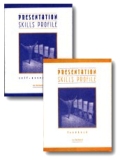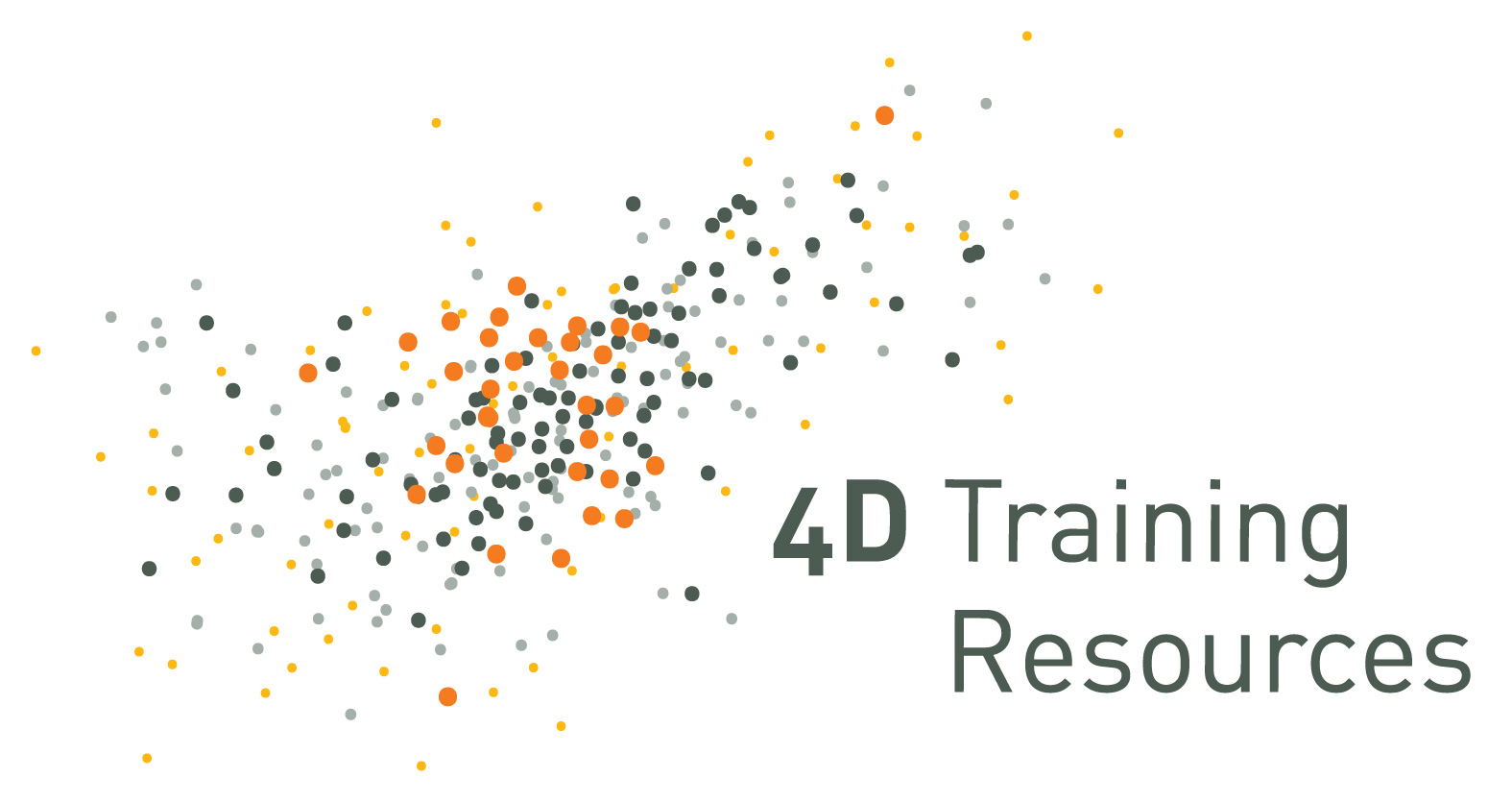Presentation Skills Profile

Speaking in front of others can be a confusing and even terrifying experience for many people. So how can you successfully train your participants, even those with no prior experience, to effectively prepare and deliver presentations?
Until recently, making a presentation was a novel experience for most people - presenting was viewed as an executive activity. Now, as more work is carried out by teams and responsibilty for results is shared more evenly between management and staff, the need to communicate ideas and information is becoming everyone's job.
It is estimated that more than 30 million spoken presentations take place each day across the world. As large as that number sounds, if we consider that it includes presentations, coaching and training sessions, information briefings, public speeches, talks, progress reports, it may be an underestimate. |
Recent surveys indicate that the ability to communicate is the most-needed attribute to succeed in today's workplace. In particular many recruitment and human resource specialists believe that a lack of presentation skills can be damaging to career advancement prospects. Whether you present because it is part of your job or you simply wish to share information and ideas with others, the Presentation Skills Profile can help you be a better presenter.
The Presentation Skills Profile (PSP) takes the mystery out of designing and delivering high-impact presentations. Designed to ease the stress associated with public presentations, PSP analyzes how the respondent prepares and delivers presentations, provides for peer feedback on a specific presentation, and then offers a walk-through of preparation and delivery for future presentations.
Learning Outcomes
- Identify and set presentation objectives
- Discover how to analyze and involve the audience
- Learn how to design and display effective visual aids
- Practice staging presentations
Theory
The Presentation Skills Model at the center of the Presentation Skills Profile shows the influences of the relevant literature on presentation skills, including the work of Holcombe and Stein and others. The model contains the 6 Presentation Questions that help individuals turn lackluster presentations into engaging dialogues with their audiences.
How It Works
The assessment presents 48 statements regarding preparation and delivery of presentations. In scoring the assessment, participants determine their Overall Presentation Effectiveness Score. In addition, participants create a self-profile showing strengths and areas of improvement (relating to the 6 questions of The Presentation Skills Model). Feedback forms submitted by peers provide data to create a second — or “feedback” —profile. Finally, participants complete worksheets for preparing and delivering a future presentation.
Uses for the Presentation Skills Profile
Presentation Skills Profile is designed for use by anyone who is called upon to prepare and deliver presentations. Those who require their audience to agree with a conclusion and/or course of action will gain particular benefit by using the profile. The model upon which the instrument is based may be applied in the following types of presentations:
- Sales presentations (including presentations that require audiences to make a decision)
- Motivational speeches
- Coaching and training sessions
- Information briefings
- Entertainment
Presentation Skills Profile can be used to evaluate a specific presentation, measuring progress in preparing and delivering presentations. As with all HRDQ tools, the assessment is effective when used alone or as the centerpiece of a workshop or longer program on presentation skills.
What to Order
Order one Facilitator Guide per facilitator and one Participant Guide per participant and up to 10 Feedback Forms per participant.
Facilitator Guide includes:
- Administrative guidelines
- Sample training design
- Theoretical background
- The Presentation Skills Model
- Overhead transparency masters
- Reproducible masters (overhead transparency masters and activity handouts including case studies)
Participant Guide includes:
- 48-item assessment
- Pressure-sensitive response form
- The Presentation Skills Model
- Diagram for creating self and feedback profiles
- Interpretive information
- Action planning (worksheets based on the 6 questions from the model)
Feedback Form includes:
- 24-item version of the PSP (for evaluating a specific presentation)
- Pressure-sensitive response form
Related Assessments and Workshops
Interpersonal and Communication Skills > Course 2015 - Influencing with Assertive Communication
Interpersonal and Communication Skills > Course 2016 - Building the Communication Bridge
Interpersonal and Communication Skills > Course 2017 - What's My Communication Style?
Interpersonal and Communication Skills > Course 2018 - Interpersonal Influence
Interpersonal and Communication Skills > Course 2019 - Learning to Listen
Interpersonal and Communication Skills > Course 2020 - Neurolinguistic Communication Profile
Interpersonal and Communication Skills > Course 2022 - Emotional Intelligence Skills Assessment
Related Reproducible Training Library Titles
Interpersonal and Communication Skills > Course 2050 - Communication Skills for Emerging Leaders
Interpersonal and Communication Skills > Course 2051 - The Art and Science of Communication
Interpersonal and Communication Skills > Course 2052 - Communication Skills for Tech Professionals
Interpersonal and Communication Skills > Course 2053 - The Art of Effective Communication
Interpersonal and Communication Skills > Course 2054 - Fundamentals of Effective Facilitation
Interpersonal and Communication Skills > Course 2055 - The Art of Influencing Others
Interpersonal and Communication Skills > Course 2056 - Giving and Receiving Feedback
Interpersonal and Communication Skills > Course 2057 - The Communication Mystery: Solved Interpersonal and Communication Skills > Course 2058 - Supervisor Communication Skills
These programs come ready-to-deliver and include a Facilitator's Guide, Participant Guide and PowerPoint presentation or register for an in-house session.

